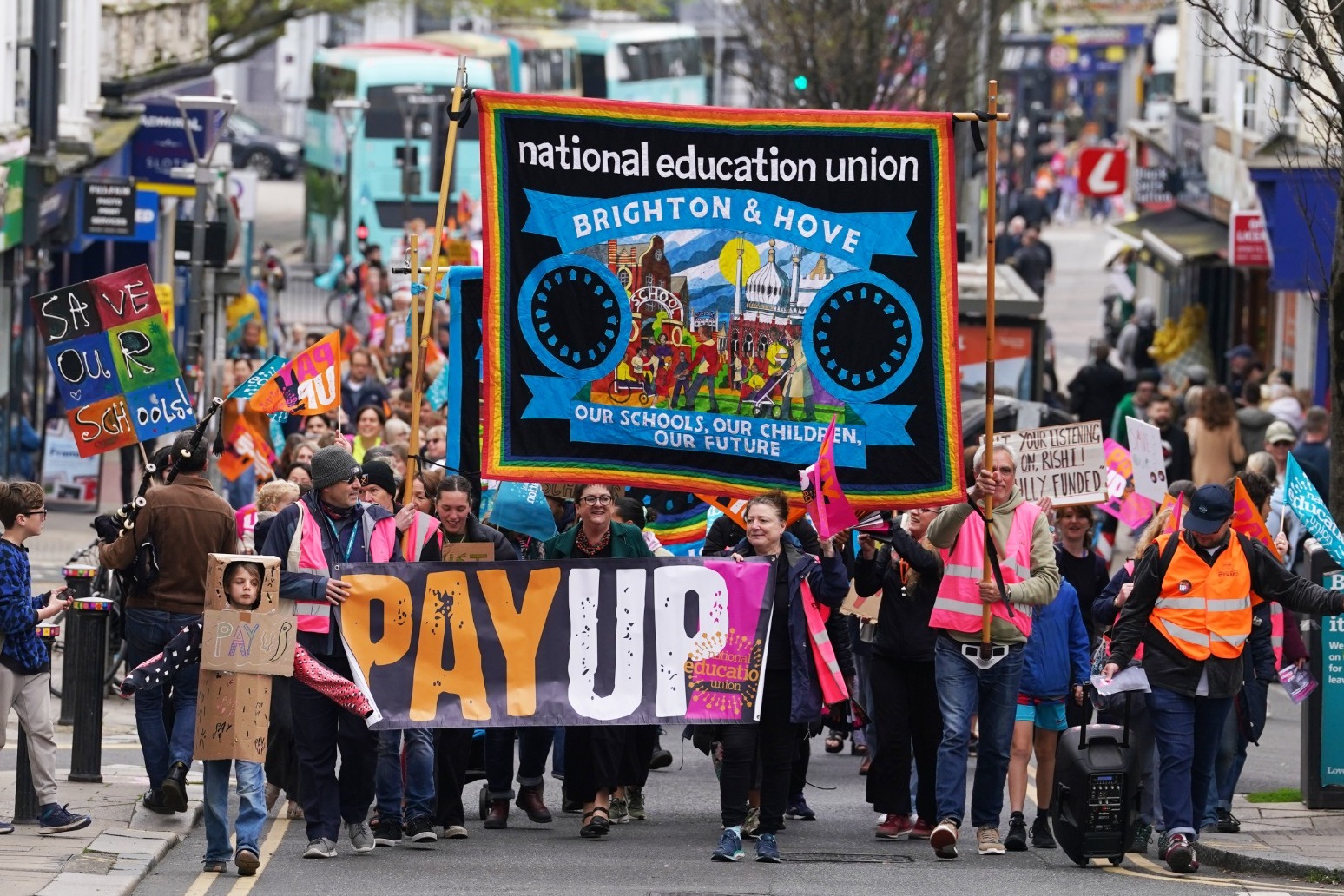
Pupils and parents are facing more disruption as tens of thousands of teachers walk out of schools and sixth-form colleges across England.
Teacher members of the National Education Union (NEU) are back on picket lines on Tuesday as they stage a fresh strike in a long-running pay row.
The NEU – which also staged a strike on Thursday – believed the majority of schools would either restrict access to pupils or fully close during the walkouts.
It is the sixth day an individual school in England has faced strike action by members of the NEU this year.
The NEU issued guidance saying it would support arrangements that “provide the minimum level of teaching staff needed” on strike days so pupils with upcoming exams could attend classes.
Some teachers will be on the picket line but go in to teach their A-level class in the afternoon, the leader of the NEU said.
Picket lines were mounted outside schools in England on Tuesday morning, while a protest outside the Department for Education (DfE) and a rally outside Downing Street in London are due to be held.
It comes as four unions representing teachers and schools leaders said they could co-ordinate any future industrial action in England in the autumn after members voted to reject the Government’s pay offer.
The Government offered teachers a £1,000 one-off payment for the current school year (2022/23) and an average 4.5% pay rise for staff next year after intensive talks with the education unions.
The NEU’s executive is due to meet this month to decide whether to approve three more strike days in late June or early July.
Kevin Courtney, joint general secretary of the NEU, said it is “very likely” the three further strike dates planned for the summer term will go ahead.
Speaking at a picket line outside City and Islington College in north London, Mr Courtney told the PA news agency: “At that stage that would be just the NEU. All the unions are balloting, we are re-balloting, but the timescales that that will lead to will be the autumn term.
“But we want the Government to settle this before the autumn term, so we want to maintain pressure on the Government before the autumn term.”
All state schools in England could be affected by walkouts in the autumn term if the four unions join up for strike action, union leaders have warned.
Currently only the NEU has a mandate to take strike action and it plans to re-ballot its teacher members in England to take further action in the autumn.
The National Association of Head Teachers (NAHT) and the NASUWT teaching union – which both failed to meet the mandatory 50% turnout threshold required for strikes in England in their last ballots – will re-ballot members.
The Association of School and College Leaders (ASCL) is also due to hold a formal ballot for national strikes in England for the first time.
Asked if the pay offer “galvanised” other education unions to ballot on strike action, Mr Courtney told PA: “I really do think that, yes.
“The Government, (Education Secretary) Gillian Keegan, really miscalculated what the offer was.
“She must have thought that some of the unions would accept it, so to get a unanimous rejection after balloting members, I think that tells you something.”
The decision on teachers’ pay in England for next year has been passed to the pay review body, the School Teachers’ Review Body (STRB).
Cabinet minister James Cleverly said a “good offer” has been made to teachers over pay and workload reduction.
The Foreign Secretary told LBC Radio: “The best way of minimising disruption to students is for those teachers to be in the classrooms.
“Many, many students have had a very, very disrupted last couple of years because of Covid and I think everything we can do to help them start their lives better through education is really, really important.”
A DfE spokesperson said: “For unions to co-ordinate strike action with the aim of causing maximum disruption to schools is unreasonable and disproportionate, especially given the impact the pandemic has already had on students’ learning.
“Children’s education has always been our absolute priority and they should be in classrooms where they belong.
“We have made a fair and reasonable teacher pay offer to the unions, which recognises teachers’ hard work and commitment as well as delivering at additional £2 billion in funding for schools, which they asked for.”
Published: by Radio NewsHub







